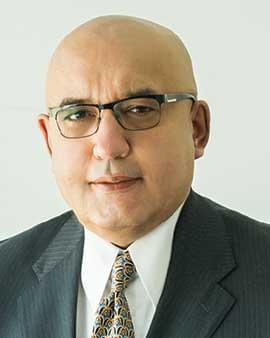
Over the years, tax professionals have questioned the traditional salary based remuneration strategy used to pay corporate small business owners or whether the withdrawals should be characterized as dividends, or a mix.
The structure of Canadian income tax for individuals and corporations is "fully integrated." Whether you pay yourself a salary or a dividend, when you take the taxes paid at the corporate level and those paid personally, the combined taxes should be the same regardless of if you take all salary, all dividends, or a mix. In most scenarios, the difference between the two is within one or two fraction points that can work in favour or against you. As a result, this may impact your decision on your compensation.
Salary
Any salary or bonus paid out is considered a tax deduction (an expense) for the corporation. All tax is therefore borne by the individual on their personal tax return. If the corporation pays you a salary, the big advantage is that you have a personal income, which could maximize your RRSP contribution room for the following year. RRSP deduction limit is dependent upon having an 'earned income', which includes employment income, but not dividends.
If you own a business, you may also want to consider paying a salary to related employees such as your spouse of children. This is income splitting, and is defined as the transfer of income from a person in a higher income tax bracket to a person in a lower income tax bracket.
Paying yourself a salary means you will also be paying into the Canada Pension Plan (CPP). Your CPP retirement pension is based on how much and for how long you've contributed to the plan, so this can be an important retirement consideration.
There are, however, disadvantages to getting a salary from your corporation. Salaries generate personal income, which, unlike dividends, are 100% taxable. Dividends, on the other hand, are taxed at a lower rate. Additionally, you will have to pay both portions of CPP as you are both the employer and the employee.
Dividends
A dividend is money paid out to shareholders out of the corporation's profits. Shareholders who include their dividends on their personal income tax, receive a dividend tax credit equal to the taxes already paid at the corporate level to prevent "double-dipping" by tax authority.
When receiving dividends, you do not have to make CPP contributions or remit source deductions on a monthly basis. From an administrative standpoint, you have to record director's dividend resolution in corporate minute book.
Where corporate funds are not required for immediate personal use, it is best to pay the higher corporate rate and to retain the funds to be paid out later as dividends. Using a dividend-only strategy and keeping the deferred tax savings in your company will result in an overall income tax saving. However, the amount of savings is different for everyone and is based on the number of years the funds are left in the company, the rate of return, and whether the shareholder(s) are disciplined enough to use company's funds.
Generally, corporate small business owners who employ a dividend-only strategy and retain the deferred income tax savings in their corporations will end up with more after-tax funds than if they were remunerated by salary.
Disadvantages of being paid in dividends include a loss of RRSP. Corporate small business owners who remunerate themselves solely by dividends cannot contribute to an RRSP as the RRSP deduction limit is dependent upon having an "earned income," which does not include dividends.
Furthermore, if a salary is not paid, your CPP entitlement at retirement will be significantly reduced. You cannot contribute to CPP unless you are paid a salary or earn self-employment income.
Additionally, if you are the lower income spouse and paid solely by dividend, you will not have any earned income and will not be entitled to claim your child care costs.
Here are some common compensation strategies:
- Dividends to inactive family members spouse and children; provided they are shareholders in the company.
- Dividends to owners who aren't keen on paying into the CPP and are fine with using their operating company (or better yet, a holding company) to accumulate their retirement savings on a tax-deferred basis. Often recommended a nominal salary of at least $5,000 per year to qualify for the non-refundable employment tax credit on their annual personal income tax return as well as to provide a base level of disability insurance coverage through the nominal CPP premiums that will be triggered as a result.
- Salary of at least $130,000 to the owner (often professionals) to maximize RRSP deduction room with any excess compensation requirements coming out in the form of dividends, often to an inactive spouse as well as to the professional.
For more information on salary, dividend, and compensation strategies, you can reference CPABC Tax Tips. If you have any questions about such compensation contact Sidhu & Associates chartered professional accountant .

